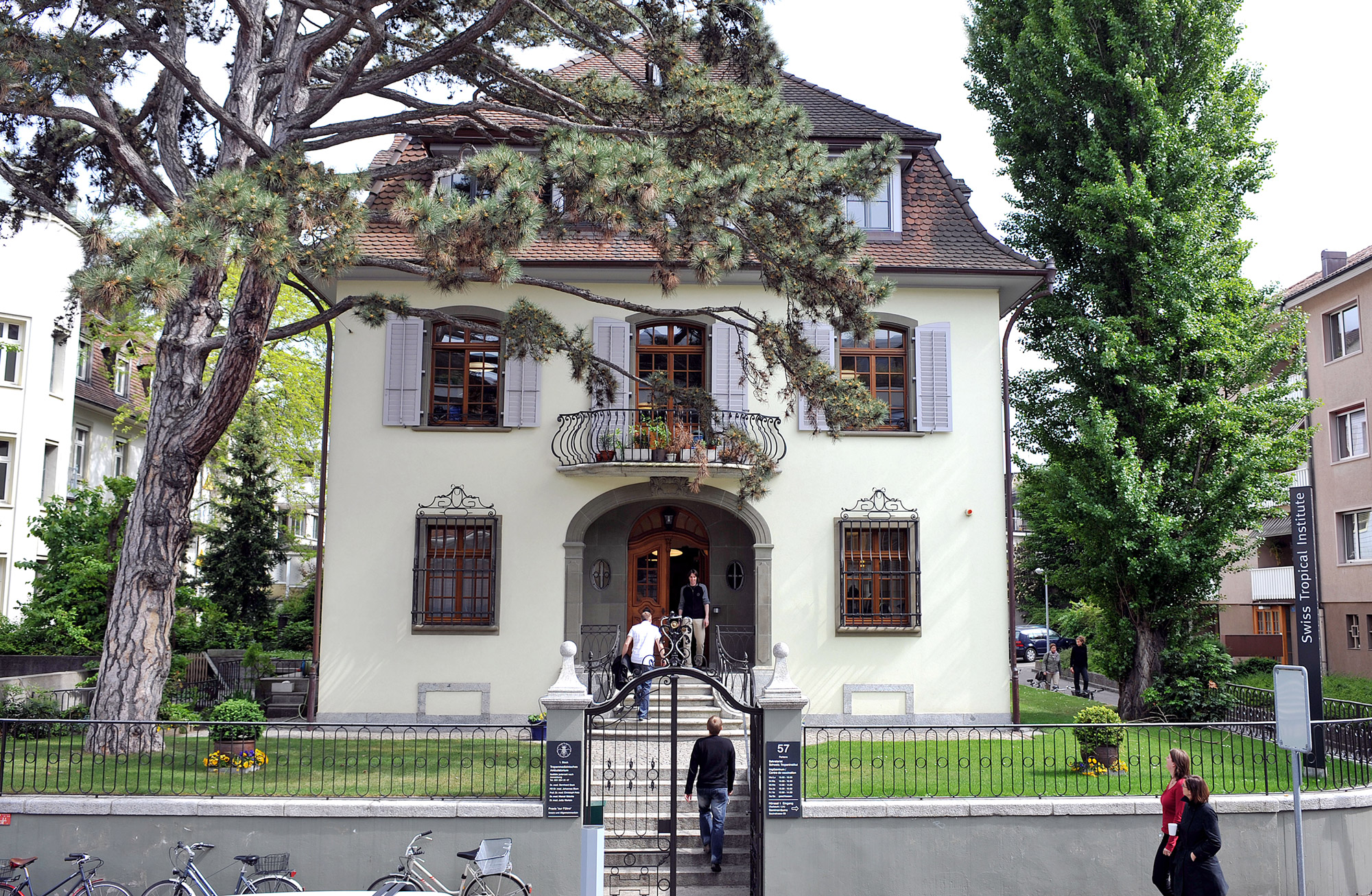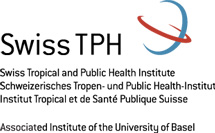The Swiss Tropical and Public Health Institute (originally Swiss Tropical Institute) or Swiss TPH was founded in 1943 as a public institution and associated institute of the University of Basel.
The mandate of the Swiss TPH is to contribute to improving the health of populations—internationally, nationally, and locally—through excellence in research, services, and education and training. Currently, approximately 650 Swiss TPH staff members from 70 nations are working in Basel and 150 staff members are based in 20 countries around the world. Swiss TPH pursues a mandate to contribute to better health locally, nationally, and internationally, through research, teaching/training and direct services provision, policy dialogue and public health action emphasizing resources poor settings and neglected diseases and populations.
Swiss TPH works along a value chain from innovation to validation and application. Our activities include research into infectious and non-communicable diseases, environmental epidemiology, health transition, and the validation of new control methods and their implementation into health programs. These activities are further enriched by our commitment to interdisciplinary collaboration and a network of well-established partnerships in both low- and middle-income countries in Africa, Asia, South America, and Eastern Europe.
Swiss TPH’s activities in the field of malaria research and control illustrate how the Institute’s work ranges from innovation to validation and application. The R&D portfolio ranges from the basic biology of Plasmodium sp. and Anopheles sp. to identifying new drug, vaccine, and vector control candidates, their subsequent clinical development, and their integration into international policy and national control programs. Swiss TPH also contributes to the design and implementation of integrated control approaches in urban and rural settings. Many of these control approaches are extensively modeled to optimize their implementation. In 2017, following years of fruitful collaborations, Swiss TPH was designated a World Health Organization Collaborating Centre for Modelling, Monitoring, and Training for Malaria Control and Elimination.
Swiss TPH staff undertakes a wide range of consultancy and backstopping activities aimed at strengthening health systems, including understanding the social, cultural, and economic contexts that govern health and social systems. Swiss TPH also acts as a Local Funding Agent for the Global Fund to Fight AIDS, Tuberculosis, and Malaria in 16 countries. It hosts the Swiss National Reference Centre for Imported Human Parasitic Diseases, as well as a Centre for Travel Medicine that offers extensive clinical and diagnostic facilities.
Education and training is another important pillar of Swiss TPH. “Mutual learning for change” is the guiding principle. As an associated institute of the University of Basel, Swiss TPH is involved in different curricula of the Faculties of Medicine, Science and Humanities. Currently, the Institute offers 80 Doctor of Philosophy research positions and 40 master’s of Science positions in the frame of two master’s of Science courses (Epidemiology and Infection Biology). Swiss TPH also offers a multitude of postgraduate programs ranging from International Health to Clinical Trial Practice and Insurance Medicine. Swiss TPH receives core funding from the Swiss Federal Government, the Cantons of Basel-Stadt and Basel-Landschaft, and the University of Basel at the level of 18%, while the rest is generated through competitively acquired project funds and from service earnings.

